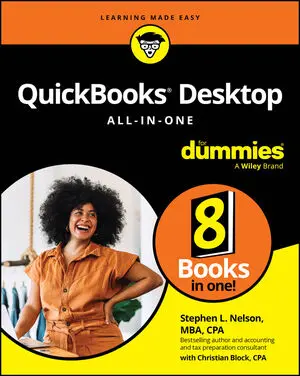After you’ve set up multiple users, you can install the QuickBooks program on other personal computers and then — assuming that all these personal computers connect to a Windows network — use those other copies of QuickBooks to access the QuickBooks data file stored on the first or principal computer.
To use QuickBooks in an environment of simultaneous use by multiple users, you also need to tell QuickBooks that simultaneous use is okay. To do this, choose the File → Switch to Multi-User Mode command. (If you want to turn off Multi-User Mode later, choose File → Switch to Single User Mode again.)
QuickBooks supports simultaneous use by multiple users through a technology called record locking, which locks all the records that you’re working with, but not the entire QuickBooks data file. If you want to work with Company A, and some other user wants to work with Company B, that’s okay. QuickBooks allows it. What you and the other user can’t do, however, is work on the same company (A or B) at the same time. This would mean that you’re working with the same customer record.
You can’t install the same copy of QuickBooks on multiple machines and legally have a multiple-user QuickBooks system. You must purchase a copy of QuickBooks for each machine on which QuickBooks is installed. Note, however, that Intuit does sell some multiple-user versions of QuickBooks in which you actually buy five licenses in one box of QuickBooks. (The Enterprise version of QuickBooks supports multiple-user networks with up to 30 simultaneous users, and the other versions of QuickBooks support multiple-user networks with up to 5 simultaneous users.)
You may want to have several QuickBooks users if sales representatives in your firm prepare invoices or prepare bids for customers. In this case, you may want to have each salesperson set up on QuickBooks. Note, however, that these salespeople should have the ability only to create an invoice or perhaps create and print an invoice estimate. Remember, you want to be very careful about giving inexperienced accounting users full access to the accounting system.






